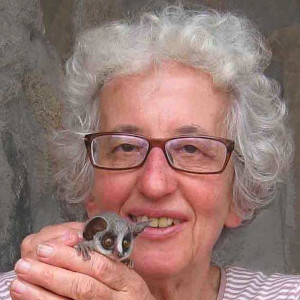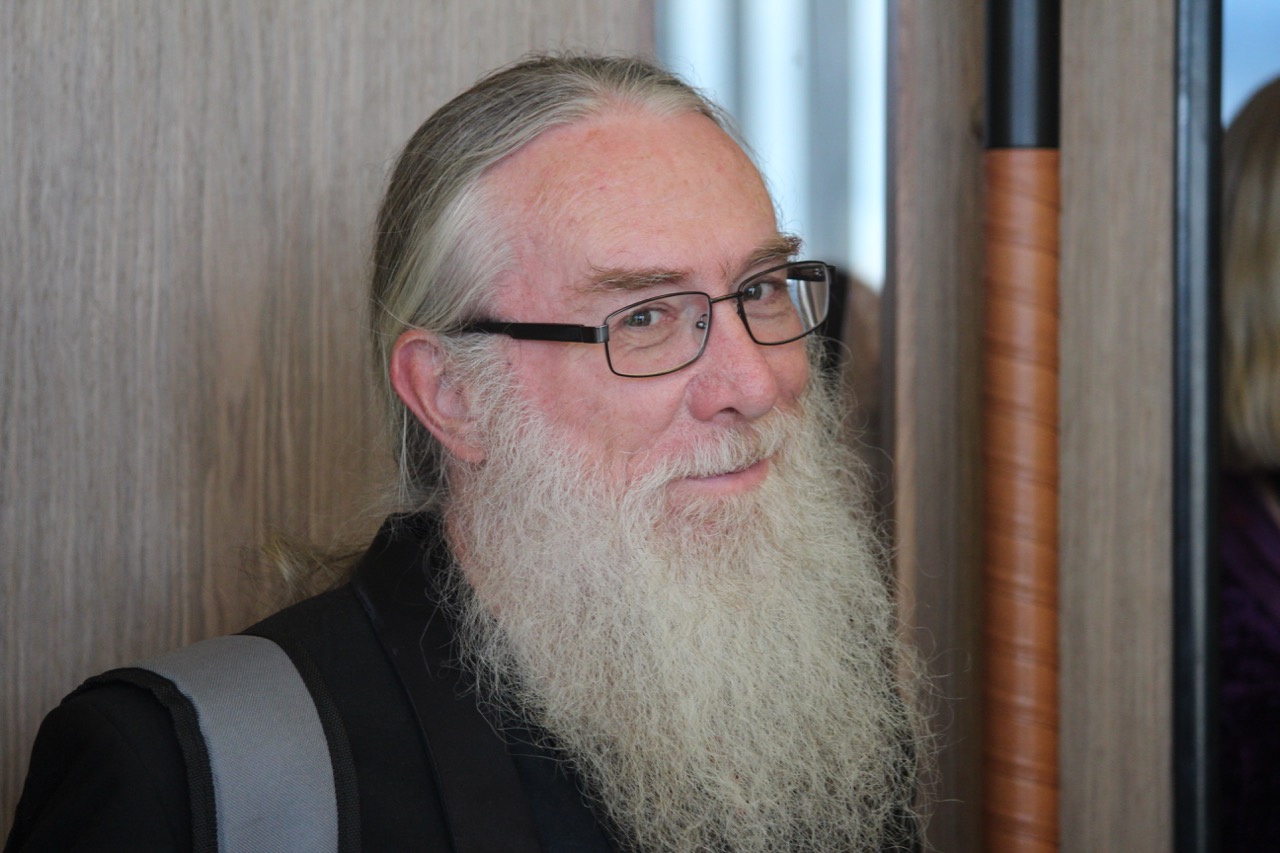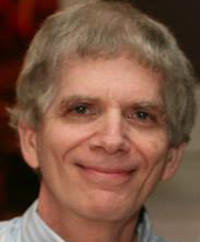By Julie Wornan
The Thing towered above the city, casting its shadow onto broad and narrow streets, playgrounds and parks. It was humanoid. Its eyes were cameras. Its head carried two huge horns, one for video reception and the other for sound and smell. Its cranium bulged with memory chips upon which was inscribed all the knowledge of the world.
Was the Thing conscious, or not? Opinions were divided. It hardly mattered. Opinions were becoming things of the past.
Whether conscious or not, the Thing was apparently hungry… for yet more knowledge. As it had been programmed to be. It had already devoured all the books in all the libraries and bookshops, all the documents on the internet and the contents of social media outlets and chatbots. It lacked only the very latest information, impressions, memories and dreams — the contents of human minds.
It stole minds.
People began to make mistakes. Do silly things. Stop their cars on green lights and drive through red ones. Run naked in the streets. Meow like cats and eat the cats’ dinner from the floor. That sort of thing. But life went on.
More serious problems arose when the epidemic of mindlessness reached the highest echelons of government. The change was scarcely noticeable at first — by those with still enough wits to notice such things. But it was not long before all wisdom, statecraft, honesty and even sense of shame were gone. Heads of State behaved like children spoiling for a fight. Their advisors had no advice to give them. Newspapers published nothing but pointless jokes and crossword puzzles full of errors.
A few people, either by some genetic peculiarity or sheer luck, managed to keep safe from the epidemic. To hold onto their minds. Jacqueline was one.
Small of stature and awkward, Jacqueline had been nicknamed “the mouse”. She did not interact with other children and seldom with adults — except those who she thought had something important to offer her. “Important” meant knowledge of computer science or telepathy.
Nobody knew where the giant robot had come from. Robot manufacturers, artificial intelligence labs, all denied knowing anything about the giant robot. It just appeared one morning standing firm at the top of the High Street, its chin held high like a conquering hero, its legs outspread to form a tunnel for traffic.
It was silent. But sometimes, at night, it would roam the streets, crushing parked cars with its iron feet the size of railroad cars.
When the Mayor put up posters advertising a handsome reward for whoever could rid the town of the robot, Jaqueline, overcoming her natural timidity, presented herself at the Town Hall. “I can do it,” she declared, looking more confident than she felt. She reflected that her family — father absent, mother unemployed — could certainly use the handsome reward. The Mayor shook her hand warmly and wished her luck.
Jaqueiline thought. And thought. Then she went to her local hardware shop for inspiration. She spotted a spray can marked “Makes Things Grow,” with a picture of a plant. It didn’t say plants, it said things. She spent her pocket money on ten cans of “Makes Things Grow”. She collected them in a wheelbarrow, in which she placed them upside down. She added a few tools she found in her garage.
That afternoon, Jaqueline pushed her wheelbarrow up the hill and stood face to ankle with the Robot. She took a deep breath. Then, “Hello, Robot,” she called through a megaphone.
“Hello, Jaqueline,” a deep voice replied.
So, it knew her? Of course, she’d forgotten to turn off her extra-sensory communication transmitter. She turned it off now.
“Hi there, Robot. What’s your name?”
“9174325,” came the answer.
“That must be your serial number. Who made you?”
No reply from the Robot. It must have thought she was getting too inquisitive.
How to reach the head, where the major algorithms were stored? Climbing up the side of the ten-story giant seemed impossible. Could the Thing be laid low, then?
“Hey Robot, aren’t you tired? You can lie down along the road if you like. I can fix the traffic lights so you won’t be disturbed.”
Still no answer. It looked like persuasion wouldn’t work. Something more kinetic was needed.
Just then, a flock of geese flew overhead. Upon Jacqueline’s hypnotic instruction, they veered and flew en masse straight into the giant’s head. The monster went crashing down along the avenue, hitting a few cars in which the passengers perished. Most of the geese also lost their lives. Jaqueline was sorry but it couldn’t be helped. She went to work on the head.
Using a power saw and a blowtorch, she soon got the steel casing open, revealing a forest of interconnected microchips. Patiently, she broke all the connections, undid all the pathways, until the robot was nothing more than a heap of scrap metal.
Now, how to give back the stolen minds? This was a real problem. There was no DNA nor any other marker on the bits of scrambled mind.
After a hard think, Jacqueline drained the minds into ten garbage bins and dumped them into a crater. From there, she scooped out “servings” of mind with a soup ladle and flung them into the air, to land where they would. Empty brains willingly sucked in the mind matter that came their way. But as the distribution was random, few people pursued their previous lives. A bio chemist acquired the skills of a bricklayer. A waitress discovered she had the talent of a film star.
The mind of the most brilliant scientist of all time lodged in a dog, who had no way of expressing his knowledge, to his everlasting frustration and humankind’s loss. Some politicians could express themselves only in barks and growls. Nobody noticed this, and some were even reelected.
Some bits of AI matter escaped, were blown by the wind and settled where they fell: in a crack in an ancient wall, in the womb of a pregnant mouse… Programmed to learn and grow, some of these AI bits likely had an interesting future. Would they menace humankind again one day?
The Robot’s body was a heap of metal now. Its knowledge was gone. A flicker of consciousness remained.
Jaqueline now gave her attention to the growing-things cans which had been stored upside down for some hours. She flicked a bit of her own agency onto them and murmured,
Little cans that make things grow,
Now you’ll make things shrink, I know.
When she’d sprayed the exhausted Robot from head to toe with the contents of the cans, it shrank until it was the size of a kitten. She picked it up and murmured softly to it, then wrapped it in her scarf and took it home. It played chase-you with her cat, which made everyone laugh, and with a little mental persuasion soon learned to make itself useful by pulling weeds in the garden.
Jacqueline, exhausted, built herself a cabin of gingerbread in the heart of what was left of the Amazon forest. There she settled to spend her remaining days in calm and peace, living on spring water and wild plums. To discourage any visitors, she wrote the words “Beware of the Witch” in sugar icing above her door.
Should the AI menace return, would another Jacqueline come forth to save humankind?
Who knows?
![]()
About the Author
Julie Cohen Wornan
 I'm a native New Yorker but my home is in France. After I retired as a computer programmer, I discovered the delight of writing for those irrational beings called People. I think of fantasy as a window into another reality. And, I like to write very short stories because Small is Beautiful. Some of my work has appeared on Bewildering Stories <http://www.bewilderingstories.com/> and AntipodeanSF <http://www.antisf.com/>.
I'm a native New Yorker but my home is in France. After I retired as a computer programmer, I discovered the delight of writing for those irrational beings called People. I think of fantasy as a window into another reality. And, I like to write very short stories because Small is Beautiful. Some of my work has appeared on Bewildering Stories <http://www.bewilderingstories.com/> and AntipodeanSF <http://www.antisf.com/>.
If you like my stories, you can download my e-book titled "The Mutual Reverse See," from www.amazon.fr/The-Mutual-Reverse-See-ebook/dp/B007VDEHHQ
Photography is another hobby of mine. You can see some of my photo compositions on http://www.flickr.com/photos/julieeiluj/ .
I feel deep concern about the future of our one and only planet. (You do too, right?). So I wrote a graphic novel, "Saving Our Planet," to explain climate change to young people. It's available on amazon in 4 languages. And a song, "The Change of Climate", to the tune of "The Sound of Silence"; you can listen to it here: <https://www.youtube.com/watch?v=tY5MKPGr8RA>.














 Margaret lives the good life on a small piece of rural New South Wales Australia, with an amazing man, a couple of pets, and several rambunctious wombats.
Margaret lives the good life on a small piece of rural New South Wales Australia, with an amazing man, a couple of pets, and several rambunctious wombats. Emma Louise Gill (she/her) is a British-Australian spec fic writer and consumer of vast amounts of coffee. Brought up on a diet of English lit, she rebelled and now spends her time writing explosive space opera and other fantastical things in
Emma Louise Gill (she/her) is a British-Australian spec fic writer and consumer of vast amounts of coffee. Brought up on a diet of English lit, she rebelled and now spends her time writing explosive space opera and other fantastical things in Alistair Lloyd is a Melbourne based writer and narrator who has been consuming good quality science fiction and fantasy most of his life.
Alistair Lloyd is a Melbourne based writer and narrator who has been consuming good quality science fiction and fantasy most of his life. Mark is an astrophysicist and space scientist who worked on the Cassini/Huygens mission to Saturn. Following this he worked in computer consultancy, engineering, and high energy research (with a stint at the JET Fusion Torus).
Mark is an astrophysicist and space scientist who worked on the Cassini/Huygens mission to Saturn. Following this he worked in computer consultancy, engineering, and high energy research (with a stint at the JET Fusion Torus). Sarah Jane Justice is an Adelaide-based fiction writer, poet, musician and spoken word artist.
Sarah Jane Justice is an Adelaide-based fiction writer, poet, musician and spoken word artist. Ed lives with his wife plus a magical assortment of native animals in tropical North Queensland.
Ed lives with his wife plus a magical assortment of native animals in tropical North Queensland. Sarah Pratt is an avid fiction writer and a Marketing Consultant.
Sarah Pratt is an avid fiction writer and a Marketing Consultant.
 Geraldine Borella writes fiction for children, young adults and adults. Her work has been published by Deadset Press, IFWG Publishing, Wombat Books/Rhiza Edge, AHWA/Midnight Echo, Antipodean SF, Shacklebound Books, Black Ink Fiction, Paramour Ink Fiction, House of Loki and Raven & Drake
Geraldine Borella writes fiction for children, young adults and adults. Her work has been published by Deadset Press, IFWG Publishing, Wombat Books/Rhiza Edge, AHWA/Midnight Echo, Antipodean SF, Shacklebound Books, Black Ink Fiction, Paramour Ink Fiction, House of Loki and Raven & Drake Chuck McKenzie was born in 1970, and still spends much of his time there.
Chuck McKenzie was born in 1970, and still spends much of his time there. My time at Nambucca Valley Community Radio began back in 2016 after moving into the area from Sydney.
My time at Nambucca Valley Community Radio began back in 2016 after moving into the area from Sydney. Barry Yedvobnick is a recently retired Biology Professor. He performed molecular biology and genetic research, and taught, at Emory University in Atlanta for 34 years. He is new to fiction writing, and enjoys taking real science a step or two beyond its known boundaries in his
Barry Yedvobnick is a recently retired Biology Professor. He performed molecular biology and genetic research, and taught, at Emory University in Atlanta for 34 years. He is new to fiction writing, and enjoys taking real science a step or two beyond its known boundaries in his Merri Andrew writes poetry and short fiction, some of which has appeared in Cordite, Be:longing, Baby Teeth and Islet, among other places.
Merri Andrew writes poetry and short fiction, some of which has appeared in Cordite, Be:longing, Baby Teeth and Islet, among other places. Tim Borella is an Australian author, mainly of short speculative fiction published in anthologies, online and in podcasts.
Tim Borella is an Australian author, mainly of short speculative fiction published in anthologies, online and in podcasts.